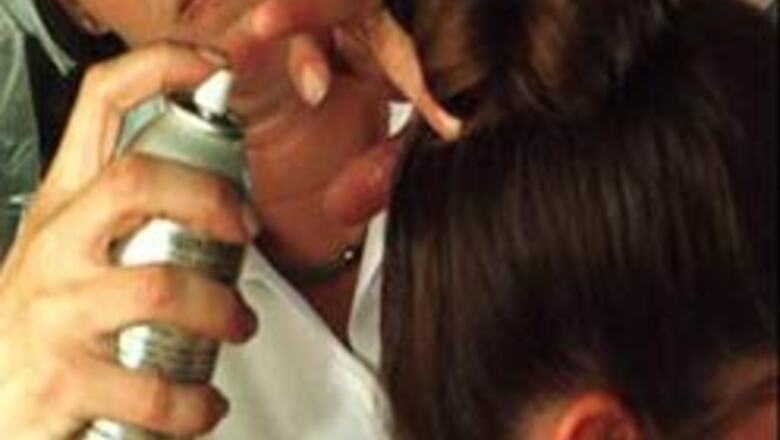
views
Washington: The next time you pick up that bottle of shampoo at the supermarket, be sure to check whether it has an ingredient called Diethanolamine (DEA), for a new research has found that it interferes with normal brain development.
The study was conducted on a mouse model by researchers at the University of North Carolina at Chapel Hill.
The researchers found that when Diethanolamine was applied to the skin of pregnant mice, the foetuses showed inhibited cell growth and increased cell death in an area of the brain responsible for memory - the hippocampus.
Diethanolamine is also an ingredient in other personal care products such as Softsoap Extra Moisturizing Antibacterial Liquid Hand Soap and Softsoap Antibacterial Liquid Hand Soap with Light Moisturizers.
However, researchers are warning not to let panic set in, for further study needs to be concluded, said Dr Steven Zeisel, Kenan Distinguished University Professor of nutrition in UNC's schools of public health and medicine and associate dean for research in the School of Public Health.
"I don't believe any woman who's been using these products needs to have a sleepless night about having caused harm to her child," Zeisel said.
"At this point it is a caution. But it would probably be prudent to look at labels and try to limit exposure until we know more," he said.
The researchers found that DEA appears to block the body's ability to absorb the nutrient choline, which Zeisel has previously reported is essential for normal development of the brain. A pregnant woman requires extra choline so that she can pass the nutrient on to the foetus.
The dose of DEA a person might get from shampooing is at least 10 times lower than the dose found to interfere with brain development in the study.
The researchers also are exploring DEA's effect on other areas of the brain and are testing the effects of other compounds used in personal care products.
At very high doses, DEA treatment resulted in spontaneous miscarriages in mice.
"We saw smaller and smaller litters as we gave higher doses. No one has ever noted that before," Zeisel said.
"This agent not only affects brain development, but at higher doses probably affects some other development in a way that is fatal to the fetus," he added.
The study appears in the August issue of the FASEB journal, published by The Federation of American Societies for Experimental Biology.

















Comments
0 comment